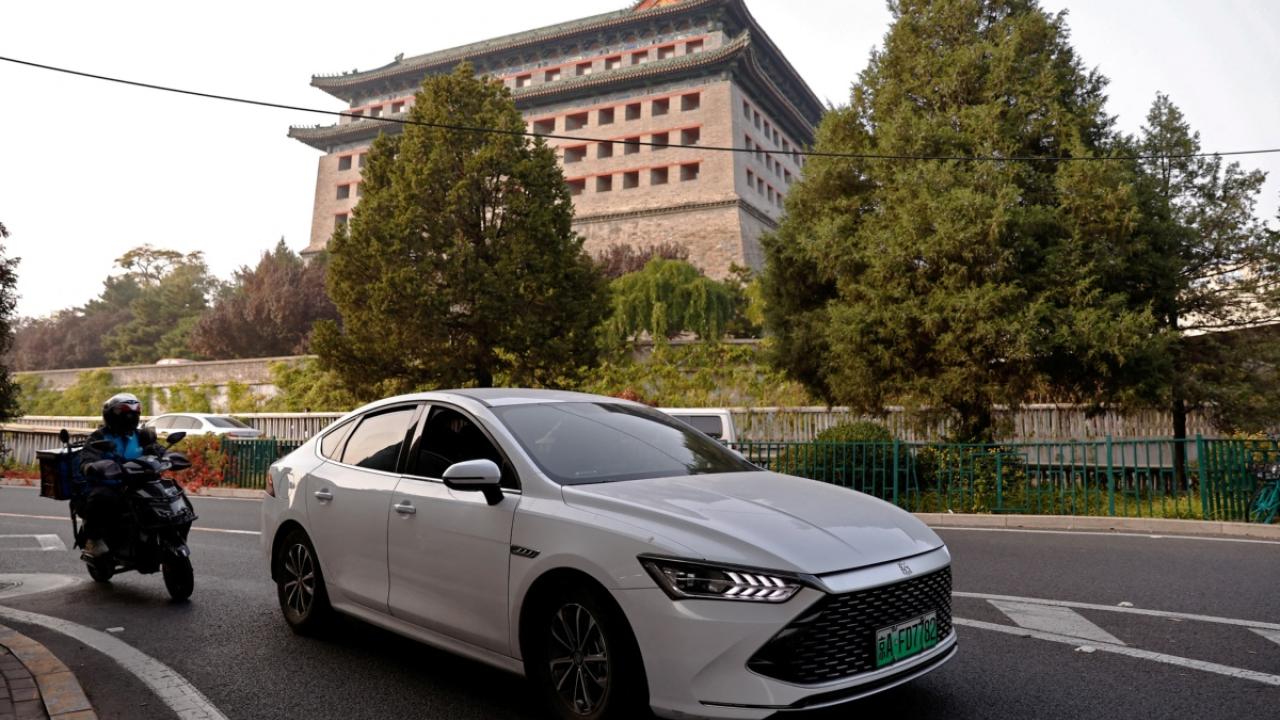
The North American country also imposes 25% tariffs on imports of steel and aluminum products from the Asian giant.
Canada has imposed 100% tariffs on battery electric vehicles (BEVs) manufactured in China and imported into the country, the Canadian government announced in a statement on Monday.
The move, which aligns the US with its allies in the United States and the European Union, is accompanied by a 25% tax on aluminium and steel products from China imported into the US, as a measure to protect domestic manufacturers.
The government led by Prime Minister Justin Trudeau has also announced that these tariffs on electric vehicles from China will come into effect as of October 1, 2024, and will include electric and some hybrid passenger cars, trucks, buses and delivery vans.
"This additional tax will be applied on top of the 6.1% most-favored-nation import tariff currently applied to electric vehicles produced in China and imported into Canada," it added.
The import tax on steel and aluminium products from China will come into effect on 15 October 2024.
PROTECTING THE CANADIAN AUTOMOTIVE INDUSTRY
Following a cabinet meeting in Halifax, Nova Scotia, the Trudeau government said it was implementing these measures to protect Canada's automotive industry, which supports more than 125,000 jobs, many of which are unionized, while noting that its electric vehicle supply chain "is among the first in the world."
"However, Canadian workers and the automotive industry are currently facing unfair competition from Chinese producers who benefit from unfair and non-market policies and practices," the government said in the statement.
The Canadian government says China's "intentional, state-directed policy of overcapacity and lack of rigorous labour and environmental standards threaten workers and businesses in the electric vehicle industry around the world" and "undermine Canada's long-term economic prosperity."
Canada's automotive sector is also highly integrated with the United States, with the vast majority of its light vehicle production, which totaled 1.5 million units last year, exported to its southern neighbor.
So now the North American country is joining its ally, who this year has imposed a 100% tariff on imports of battery electric vehicles imported from the Asian giant.
It also joins the European Union, which has also announced proposed new tariffs on electric vehicles from China, although at lower levels than those proposed by the United States and now Canada.
Products made by SAIC Motor face additional EU tariffs of 36.3%, while Geely Automobile Holdings and BYD face tariffs of 19.3% and 17% respectively, according to a draft decision published last week by the European Commission.
US automaker Tesla will see an additional 9% tariff on its Chinese-made vehicles imported to Europe.
SECOND 30-DAY CONSULTATION ON OTHER SECTORS
Finally, the Government of Canada announced that it will launch a second 30-day consultation on the imposition of additional tariffs on other sectors essential "to Canada's future prosperity", such as batteries and their components, semiconductors, solar products and essential minerals.
The Canadian government also announced its intention to limit eligibility for the Zero Emission Vehicle Incentives (iZEV), the Zero Emission Medium and Heavy Vehicle Incentives (Imhzev) and the Zero Emission Vehicle Infrastructure Program (ZEVIP) to products manufactured in countries that have negotiated free trade agreements with Canada.
"Our government is moving forward with decisive action to level the playing field, protect Canadian workers and match the steps taken by key trading partners," said Canadian Deputy Prime Minister and Finance Minister Chrystia Freeland.









